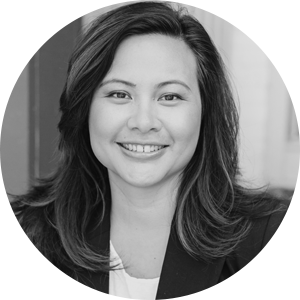1. Is there a fee for your services?
Before working with any financial professional, it’s important to understand how they’re compensated.
The services of a mortgage broker are completely free, most of the time. The only fees you may need to cover are the appraisal and legal fees.
If you’re not paying a fee, how does the mortgage broker get paid? Usually a broker earns a finder’s fee for introducing you as a new client to a mortgage lender. Most lenders offer similar finder’s fees. That means you’re getting unbiased mortgage advice at no cost. Not bad!
2. Can I get pre-approved for a mortgage?
Before viewing properties, it’s a good idea to get pre-approved for a mortgage. That’s what I did when I was searching for a property.
A mortgage pre-approval lets you know the maximum you can afford to spend on a home. However, it doesn’t guarantee mortgage financing. That’s why it’s a good idea to consider including a condition of financing to further protect yourself. You can get pre-approved for a mortgage through a mortgage broker.
3. How does the mortgage approval process work?
Once you’ve been pre-approved, you can consider where you’d like to live and search for a home with your realtor, or by using a service that does the looking for you, like Properly.ca. (You may also want to check out our cost-of-living comparison of 10 Canadian cities.)
When you have accepted an offer, you’ll work with your mortgage broker to decide the lender to submit your mortgage application.
Once the mortgage application has been submitted, you should receive the initial approval in two to three business days. You can then complete the paperwork to secure the mortgage rate and term. The lender will then send legal instructions to your lawyer to start the legal work to help with the closing process.
4. Should I go with a fixed or variable rate mortgage?
It depends on your own personal situation and how risk averse you are.
With a fixed-rate mortgage, your mortgage rate and payment remain the same for your mortgage term (usually five years). Fixed rate makes the most sense for first-time homebuyers and those who are risk averse, which is why I went with a fixed-rate mortgage when I was a first-timer. However, that stability comes at a cost. You’ll almost always pay a higher initial rate with fixed compared to variable.
With variable rate, your mortgage rate and payment can change at any point during your mortgage term. (This is usually only limited to the eight scheduled interest rate announcements the Bank of Canada makes each year). When rates go down, your payment goes down, but when rates go up, your payment goes up. Variable does usually have a lower rate than fixed, but, before signing up, make sure you’re comfortable with the possibility of your rate going up some time in your mortgage term.
5. How can I save on interest?
There are many ways to save on mortgage interest.
You could make a larger down payment (if you can afford it). By doing this you’ll take on a lower mortgage amount and may get a better mortgage rate.
Another way is by shopping around with a mortgage broker. Your local bank branch may be a good first stop, but it shouldn’t be your only stop. Shop around with a broker and save. Not only that, but if you’ve been denied a mortgage by your bank, a broker might be your best bet.
More: What to do if you're denied a mortgage
A third way to save is by making extra payments. Most mortgage lenders let you make extra lump sum payments, increase your regular mortgage payments and/or double up your payments. You can usually do this as part of your mortgage contract (you won’t face a fine or penalty for this, as long as you don’t go over your preset limit as outlined in your mortgage contract). By doing that you could save yourself tens of thousands of dollar over the life of your mortgage.
6. What prepayment privileges does this mortgage offer?
When I was looking for a mortgage, it was my goal to be mortgage-free as quickly as possible. If you’re the same way, then you’ll want to find a lender that offers good prepayment privileges.
Most lenders let you increase your regular payment and make lump sum payments. Others let you double up your payments. Some let you make lump sum payments at any point during the year. Others only let you make lump sum payments once a year.
7. What kind of mortgage penalty am I looking at if I break my mortgage early?
Although you may have no intention of breaking your mortgage when you first sign up, life is always changing. You might decide to move to pursue a new job opportunity, buy a bigger home or refinance your mortgage. That’s why it’s always a good idea to ask about mortgage penalties ahead of time to avoid any nasty surprises later on.
Variable rate mortgages tend to have the lowest mortgage penalties. You’ll usually only pay three months’ interest for breaking your mortgage. Whereas fixed mortgages tend to have costlier penalties.
If you think there’s a pretty good chance you’ll break your mortgage, you might choose variable rate over fixed.
8. What closing costs should I budget for?
The closing costs you’ll want to budget for when buying a home include land transfer tax, real estate lawyer fees, home inspection, appraisal and Provincial Sales Tax (PST) on mortgage default insurance premiums (only in Manitoba, Quebec, Ontario, and Saskatchewan).
If you can’t afford to pay the closing costs out of pocket, you can always sign up for a cashback mortgage. With a cashback mortgage, you’ll receive cashback from the lender, which you can use towards closing costs.
Sometimes, banks will offer cashback mortgages as application incentives. For example, Tangerine Mortgage occasionally offers one to new mortgage clients who also hold a Tangerine chequing account.
You’ll also need to budget for ongoing expenses beyond your closing costs—things like utilities, home insurance, repairs and maintenance.
More: Everything you need to know about home insurance
Something else not to overlook as a new homeowner is life insurance. Although you’re not required to have life insurance coverage as a new homeowner, in most cases it’s in your best interest to take out a policy. This helps ensure your family is protected should anything happen to you.
PolicyAdvisor.com has mortgage protection insurance that you can take against your life insurance policy. This would go towards making your mortgage payments if you weren’t able due to death or disability as outlined in the policy. PolicyAdvisor.com makes it easy to shop around for mortgage protection insurance from the comfort of your own home.
Get mortgage protection insurance
Issuance of coverage is subject to underwriting by the respective insurance company. The final insurance premium is established and insurance coverage offered by the insurance company only after underwriting is completed.
9. Is this a standard or collateral mortgage?
Are you planning to shop around for your mortgage when it comes up for renewal? That’s a wise decision. You could save yourself tens of thousands of dollars by doing that. A standard charge mortgage makes it easy for you to shop around. Usually, there’s no cost for you to switch lenders at the end of your mortgage term.
A collateral charge mortgage is ideal if you plan to set up a home equity line of credit (HELOC). (A HELOC is a revolving amount of credit, similar to a credit card, which is secured against your home’s equity.) However, having a collateral charge mortgage also makes it more difficult and costly to transfer your mortgage to another lender.
It’s not always obvious which type of mortgage you’re signing up for, so be sure to ask your broker whether you’re getting a collateral or a conventional mortgage upfront. Most lenders in Canada offer both standard and collateral charge mortgages; some, like Tangerine Mortgage, offer only collateral charge mortgages.
10. Are there any restrictions on refinancing this mortgage?
Ask your mortgage broker about any limitations of the mortgage before signing up and be sure you read the fine print. Some mortgages come with lower rates in exchange for restrictions. For example, you may not be able to refinance your mortgage or switch lenders during your mortgage term. If that’s something you might want to do, it may make sense to sign up for a mortgage with a slightly higher rate that gives you the freedom to refinance or switch lenders later on.
The final word
Your mortgage broker can’t read your mind. That being said, a good mortgage broker will know the right questions to ask. Your broker may very well plan to ask you all of these questions, but by asking them ahead of time yourself, you’ll feel more in control of the situation and it will help put your mind at ease. To help calm your nerves about buying your first home even more, make sure you check out our first-time homebuyer’s guide from some helpful tips and tricks.
If you’re like most Canadians, your mortgage represents the single biggest debt of your lifetime. By asking these questions, you can help make sure your broker matches you up with a mortgage product that’s well suited for you for the years to come.
More: BMO mortgages review
FAQs
How much should I budget for closing costs when buying a home?
A good rule of thumb is to budget between 1.5 percent and 4 percent of a home’s purchase price for closing costs when buying a home. That means if you were buying a $500,000 home, it’s a good idea to budget up to $20,000 for closing costs.
Can I get a mortgage rate hold?
Are you concerned that mortgage rates might be on the rise? Then you might consider getting a mortgage rate hold. A rate hold secures you a specific rate for a set time period (usually 120 days). It protects you in case rates go higher during this time. If mortgage rates go up while your rate hold is in effect when your broker is submitting a mortgage application for you, you can simply take the lower rate hold rate. If rates go down, you get the lower rate. It’s that simple!
How can I avoid paying a big mortgage penalty?
You can do this in a couple ways. You could sign up for a variable rate mortgage where the mortgage penalty is only three months’ interest. If you’re not comfortable with a variable rate mortgage and prefer going with a fixed rate mortgage, you could go with a monoline lender. Monoline lenders are lenders that offer mortgages exclusively through mortgage brokers. Unlike the banks, monoline lenders don’t have posted rates, so you’re a lot less likely to pay a high penalty on fixed rate mortgages with monoline lenders compared to the banks.
Is the morgage with the lowest rate always the best mortgage for me?
No, not necessary. As mentioned, there are other factors to consider besides just the rate, including penalties and prepayments. Sometimes it can be worth paying a slightly higher mortgage rate for a more flexible mortgage product. Your broker can help you decide whether it makes sense.
What are some of the benefits of working with a mortgage broker versus the banks?
A mortgage broker can help save you time by doing all the research for you. A broker can also help save you money by getting a lower rate for you, as he does all the negotiating with the lender for you. An independent mortgage broker isn’t tied to any one lender, so you’ll get unbiased advice. A broker can also help protect your credit score since he usually doesn’t need to pull it multiple times. Lastly, brokers tend to have more flexible hours than the banks.






